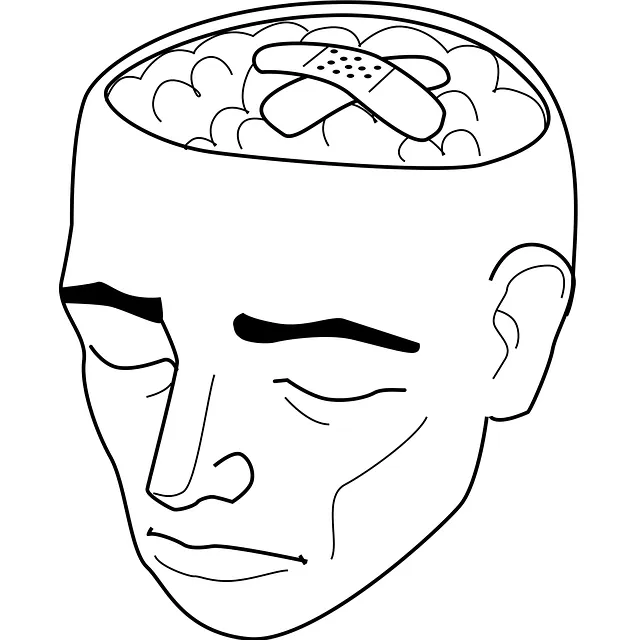Mental health professionals at institutions like Littleton and Kaiser face unique stressors, including high caseloads, complex cases, and traumatic content. To mitigate these risks, they offer specialized self-care practices (Littleton) and stress management workshops (Kaiser), focusing on risk assessment, evidence-based strategies, and continuous professional development. These proactive measures enhance well-being, foster trust, and improve care quality while addressing legal implications and public awareness through mindfulness and empathy-building initiatives.
Mental health professionals (MHPs) face unique risks on a daily basis, from high-stress environments to potential patient hazards. This article delves into the comprehensive risk assessment of MHPs, comparing services offered by prominent institutions like Littleton and Kaiser. We explore strategies for identifying and mitigating these risks in clinical practice, considering legal implications and enhancing resilience. By understanding the challenges, we aim to equip MHPs with tools to ensure safer, more effective care, addressing crucial aspects like Littleton vs. Kaiser mental health services.
- Understanding Mental Health Professional Risks
- The Littleton-Kaiser Comparison: Services Offered
- Assessing and Mitigating Risks in Clinical Practice
- Legal Implications for Mental Health Professionals
- Strategies for Enhancing Resilience and Safety in Care
Understanding Mental Health Professional Risks

Mental health professionals often find themselves navigating a complex landscape of emotional challenges and delicate situations, which can lead to unique risks and potential stressors. Understanding these risks is the first step in ensuring the well-being and resilience of these essential service providers. According to research by Littleton and Kaiser, mental health professionals may encounter various stressors related to their work, including high caseloads, complex patient cases, and exposure to traumatic content.
The constant demand for exceptional care and the personal nature of their work can take a toll on professionals’ mental health. This is where effective coping skills development becomes crucial. By implementing confidence-boosting strategies and integrating robust risk management planning, mental health practitioners can better navigate these challenges. Such proactive measures contribute to a healthier work environment and enable professionals to provide consistent, high-quality care to their clients.
The Littleton-Kaiser Comparison: Services Offered

When comparing Littleton and Kaiser in terms of mental health services, it’s evident that both organizations offer a range of comprehensive programs aimed at supporting professionals in this field. While Littleton is renowned for its specialized self-care practices, focusing on promoting work-life balance through tailored programs, Kaiser distinguishes itself with its extensive mental health education design and stress management workshops.
The former prioritizes the holistic well-being of mental health professionals by incorporating self-care strategies into their services, ensuring practitioners can effectively manage their own stress and prevent burnout. In contrast, Kaiser takes a broader approach by offering structured mental health education programs that empower professionals with knowledge and skills to navigate challenging situations. Their workshops on stress management specifically cater to the unique demands of this high-pressure field.
Assessing and Mitigating Risks in Clinical Practice

In clinical practice, mental health professionals must master the art of assessing and mitigating risks to ensure a safe and supportive environment for both patients and themselves. Risk assessment is a dynamic process that involves carefully evaluating various factors unique to each client. This includes personal history, current presentation, and potential triggers that could escalate symptoms or behavior. By employing comprehensive risk assessment tools and techniques, professionals can identify vulnerabilities and implement appropriate strategies.
Effective communication plays a pivotal role in this process, as open dialogue fosters emotional regulation for both the professional and the patient. Encouraging clients to express their feelings, fears, and thoughts allows for early detection of escalating risks. The integration of evidence-based communication strategies, tailored to individual needs, helps foster trust and encourages clients to actively participate in managing their mental health. This proactive approach is especially relevant when considering institutions like Littleton does Kaiser have mental health services, where comprehensive risk management is a cornerstone of patient care.
Legal Implications for Mental Health Professionals

Mental health professionals face a unique set of risks that extend beyond traditional workplace hazards. Legal implications are a significant concern in this field, with potential consequences stemming from malpractice, negligence, and even criminal acts. In the event of a lawsuit, professionals must be prepared to defend their practices, especially when dealing with sensitive patient information. The onus is on them to ensure they adhere to strict confidentiality protocols, as breaches can lead to severe legal repercussions.
In areas like Littleton, where Kaiser offers mental health services, professionals are held to even higher standards due to increased public awareness campaigns and stringent regulatory frameworks. Building empathy and fostering strong patient-therapist relationships are essential strategies for mitigating risks. Self-awareness exercises and ongoing professional development can help practitioners stay attuned to their patients’ needs and recognize potential red flags, thereby enhancing their ability to provide effective care while minimizing legal exposure.
Strategies for Enhancing Resilience and Safety in Care

Mental health professionals face unique challenges that can impact their well-being and ability to provide effective care. To enhance resilience and ensure safety in their practice, several strategies can be implemented. One powerful tool is Mindfulness Meditation, which has been shown to reduce stress and improve emotional regulation among healthcare workers. Regular meditation practices allow professionals to cultivate a sense of inner calm, enabling them to navigate challenging situations with greater clarity and empathy.
Beyond individual techniques, fostering a supportive work environment through Public Awareness Campaigns Development and Empathy Building Strategies is essential. Organizations like Kaiser in Littleton can play a crucial role by promoting open discussions about mental health, reducing stigma, and encouraging colleagues to prioritize self-care. Such initiatives create a culture of resilience where professionals feel empowered to seek support when needed, ultimately enhancing the safety and quality of care they provide.
Mental health professionals face unique risks in their daily practice, as highlighted by the Littleton-Kaiser comparison of services. Understanding these risks is crucial for implementing effective strategies to enhance resilience and safety. By assessing and mitigating potential hazards, professionals can ensure they provide the best possible care while navigating legal implications. Adopting comprehensive risk assessment methods and embracing strategies that foster resilience are essential steps towards a more secure and supportive work environment in mental health services.






